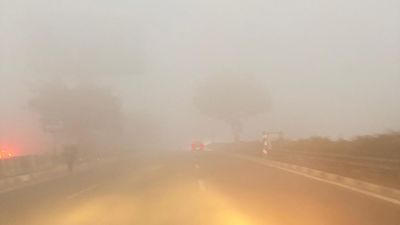2002 murder of two RSS/VHP workers: Can’t acquit solely because of faulty probe, rules SC
The top court also observed that, "A cumulative reading of the entire evidence on record suggests that the investigation has not taken place in a proper and disciplined manner."
 "The principle of law is crystal clear that on the account of defective investigation, the benefit will not inure to the accused persons on that ground alone,” the apex court ruled.(Express)
"The principle of law is crystal clear that on the account of defective investigation, the benefit will not inure to the accused persons on that ground alone,” the apex court ruled.(Express)Stating that an accused cannot seek acquittal solely on faulty investigation, the Supreme Court on Monday dismissed an appeal against the April 12, 2011, Kerala High Court judgment upholding the conviction of five men for murdering two RSS/VHP workers.
“On appreciation of the evidence, we are unable to find any fault with the judgment and order dated 12.04.2011 passed by the High Court of Kerala at Ernakulam in Criminal Appeal…Accordingly, we arrive at the conclusion that the present appeal deserves to be dismissed,” a bench of Justices Sudhanshu Dhulia and Prasanna B Varale ruled.
The Supreme Court also pulled up the Kerala Police for not investigating the case properly but added that the accused cannot take benefit of that, especially so when there is enough evidence to nail the guilt of the accused.
“A cumulative reading of the entire evidence on record suggests that the investigation has not taken place in a proper and disciplined manner. There are various areas where a proper investigation could have strengthened its case…. the principle of law is crystal clear that on the account of defective investigation, the benefit will not inure to the accused persons on that ground alone,” the apex court ruled.
“It is well within the domain of the courts to consider the rest of the evidence which the prosecution has gathered such as the statement of the eyewitnesses, medical report, etc. It has been a consistent stand of this court that the accused cannot claim acquittal on the ground of faulty investigation done by the prosecuting agency. As the version of eyewitnesses in specifically naming the appellants have been consistent throughout the trial, we find that there is enough corroboration to drive home the guilt of the accused persons,” said the judgment.
Though the counsel for the accused alleged material contradictions in the testimonies given by the prosecution witnesses, particularly the eyewitnesses, the court said “though there is a variance in the statements of the witnesses, it is minor and not of such a nature which would drive their testimony untrustworthy”. It said that the deposition of prosecution witnesses 1, 2 and 4 was “honest, truthful, and trustworthy”.







